I love space, I love how mysterious and dangerous it is and to be able to fly around in a game like Helium Rain [Steam] is fantastic. I decided to have a chat with the developer and they’re very positive about Linux gaming.
We’ve covered Helium Rain here a few times before, so hopefully some of you will be familiar with it. Without further rambling, let's begin!
First of all, can you introduce yourself and Helium Rain?
“Hello ! I'm Gwennaël Arbona from the indie developer Deimos Games. We've recently released our first title, Helium Rain, in Early Access on Steam. Helium Rain is a spaceflight and empire-building game where you play as the owner of a trading company, in a star system far away from us. Technology is limited in this universe, and different companies fight for control.”
What makes Helium Rain different to other space sims?
“Helium Rain has a focus on three important elements : realistic handling of ships, long travel times, and a dynamic universe. Ships have lots of inertia, they move in three dimensions, can turn independently from their velocity, and don't have a maximum speed. Fleets can take days to reach a destination, with a travel system that is essentially turn-based and requires you to plan ahead when you manage military fleets. And attacking a cargo ship, destroying resources or blockading an area have meaningful consequences on the world's simulated economy.”
Since travel time can take a while, how do you plan to keep players from getting bored?
“Right now, travel time is handled as a turned-based mechanic. We don't want players to wait for hours behind a screen, we just want them to move their fleets carefully, as they won't be able to come back at once if a threat appears. In the future, I'd like to make travelling a more seamless experience, but that's not something we know how we'll handle yet.”
What games inspired you to make Helium Rain and why?
“Our list of inspirations would be a very long one! I would describe the game as a collision of spaceflight and strategy game, with space sim influences like the X series or Kerbal Space program, and games like Total War or Mount & Blade. Books, movies and TV shows are also a great source of ideas for me.“
Are you sticking with singleplayer, or is multiplayer on the roadmap too?
“Helium Rain is decidedly singleplayer only. This is an important decision on the design that enables much more complex simulations and a lot more player agency. We feel that many multiplayer space sims already exist, or are being developed right now, but not so many games offer a great empire-building experience. Our goal is to let the player have fun and experiment on the game. You can take the world over if you want to, which isn't something we could offer in a multiplayer game.”
For Helium Rain, you went with Unreal Engine 4. We've heard many mixed reports about UE4 and it's support for Linux, how has it gone for you?
“The engine does a good job at working on different platforms, but we still need to test carefully and look for stable engine releases that don't have breaking issues. I'd like to thanks the volunteers who send pull requests with every version to make sure Linux is still well-supported!
For developers, the most annoying part of getting UE4 to run is the requirement to build the engine yourself first. It is an easy process, but a time-consuming one. Once the engine runs, differences with Windows are very limited, except for minor rendering differences and different compilers. We had only a handful of Linux-specific issues during development. On the client side, things depend a lot on your hardware and Linux distribution of choice. Our top Linux priority right now is AMD support, which isn't working well. We also had issues with some Linux distributions in the past, when the engine moved to a newer LLVM release that only some distributions were providing.
Overall, the environment for releasing Linux games is much better today than it was five years ago. Most game engines support Linux, the biggest game marketplaces support Linux, and the arrival of Vulkan should help with the video drivers that can still be an issue today.”
In terms of sales, how has the Linux version sold against Windows & Mac?
“We've been pleasantly surprised by the Linux sales! Estimates of the Linux market share are conflicting at best, and while we knew Linux gamers were supportive of games that were made available to them, we didn't think we would sell many Linux copies. But we actually sold 11% of all copies on Linux, a number that's been stable since we launched. For us, it's a confirmation that Linux gaming is alive and well, with highly supportive people buying games.
We didn't work on a Mac release, since Mac OS is officially available only on computers that wouldn't meet our required system specifications.”
11% sales from Linux sounds like a lot, that's well above what the Steam Hardware Survey shows for the Linux market share, any thoughts on that?
“Our take is that Linux gamers are much more enthusiastic about games on their platform, and that our game has a lot of deep mechanics to master, which probably attracts the same kind of people who love the idea of a free operating system. We also released the source code [GitHub] for the game, which might be another reason why Linux gamers get more interested than Windows gamers. I think everyone has a different reason.“
Your game is currently in Early Access, how do you plan to keep the community involved as the game progresses?
“We're very happy with how Early Access is going on right now. We receive a lot of feedback, sometimes so much that it's hard to process! We entered Early Access with a list of upcoming game features, but we didn't know which the player wanted first, or if they wanted them at all. As a result, one of our biggest updates yet was built on player suggestions, and our next update is also an answer to something that was requested a lot. Our policy is that everything a player suggests can be a great idea for the game, if we can pull it off. Multiplayer is an example of request that we can't fulfill because it breaks too many assumptions and requires too much work, but our next update brings a quick-fight mode that is a fun addition, somewhat easy to add, and useful for balancing the game.
We still have some of our initial feature list left to implement, such as a storyline, and we expect to keep working on the game for some time before we can release it.”
With all the changes happening on Steam, from Greenlight to Steam Direct, how have you found the experience? It must be harder with so many more titles arriving on Steam now?
“We found Steam to be a very crowded market, with a hundred new titles launching every week. We passed Greenlight a few years ago, and could observe the transition to the relaxed Steam Direct process. Our experience is that Steam brings little visibility to new games, and you need an active campaign on social media to get people to notice your game. Word of mouth is very important for us, which is why we track review and comments so that we know what the players are annoyed with.“
What’s your testing procedure for the Linux version? Do you test on the open source AMD GPU drivers, or mainly NVIDIA?
“At this moment, we only test on NVIDIA hardware, based on what we currently own. When the game moves to a final release, we'll try to have more testing on AMD hardware ; but hopefully by this point we will have our AMD issues resolved.”
For other developers currently working with Unreal Engine 4 who are looking to do a Linux version of their game, any words of advice?
“An important piece of advice would be to get in touch with other UE4 developers, either on forums or the UE4 Discord channel. Most of the work on porting and releasing the game is very simple, but you'll often need pointers on specific issues and workarounds. It's also important to be cautious and test your game well before releasing, something that is always important but even more so on Linux, where the software environment can be very different from one machine to another.
And of course, the most important advice would be to actually release your game on Linux. Do it!”
I would like to thank Gwennaël for taking the time to have a chat with me, it’s always a pleasure to be able to do interviews like this, especially for a rather exciting game.
You can find Helium Rain on Steam and the Official Site. It's currently 30% off as well, good time to try it out.
11% is a number with potential for more. Just purchased it! :)
I'm glad to see a successfull space-semi-sim + Linux + French game !
At this moment, we only test on NVIDIA hardware, based on what we currently own. When the game moves to a final release, we'll try to have more testing on AMD hardware ; but hopefully by this point we will have our AMD issues resolved.
This sounds a bit confusing. How can they resolve such issues by that time, if they don't test on AMD?
At this moment, we only test on NVIDIA hardware, based on what we currently own. When the game moves to a final release, we'll try to have more testing on AMD hardware ; but hopefully by this point we will have our AMD issues resolved.
This sounds a bit confusing. How can they resolve such issues by that time, if they don't test on AMD?
Memory of previous articles suggests to me that their AMD issues are UE4 engine related. Something about the way Mesa worked shaders? So if release is still a long way off, UE4 might resolve these issues as a matter of course.
Pure speculation on my part though.
Looks like an interesting game. Did GOG not accept it for their games in development program?
While I wish it was, the game isn't available on GOG right now. I hope that will change when the game has an official release after the Early Access period, but that depends on GOG - they want only the best :)
At this moment, we only test on NVIDIA hardware, based on what we currently own. When the game moves to a final release, we'll try to have more testing on AMD hardware ; but hopefully by this point we will have our AMD issues resolved.
This sounds a bit confusing. How can they resolve such issues by that time, if they don't test on AMD?
That isn't well written indeed, so I'll clarify. For now, we've been using our beta channel on Steam as primary testing for AMD hardware, but if this week's upcoming patch still doesn't cut it, we're going to go for some additional hardware. Hence my original answer - we're getting this fixed one way or another, before the game is released.
Long version : it's pretty hard to test a game for Linux. Some AMD GPUs work with the AMDPRO driver (which apparently works well with UE4?) while most modern hardware works only with the open-source Radeon driver ; and we found that different distributions didn't provide the same level of dependencies to the driver (namely, different versions of LLVM were apparently shipped with the same driver). We try to offer multiple options to help players find a working setup - the stable release channel is currently playable on AMD but features a lighting issue ; while the beta channel was meant to provide Vulkan support to workaround OpenGL issues, but has new, different issues.
It is refreshing to see that the game is basically open source. Hope they will support Vulkan on Linux soon. I bought the game as well :-)
Vulkan is very probably going to be available, especially if this week's beta patch works out. It's probably not going to be as fast as the regular OpenGL implementation yet, though.
Last edited by Stranger on 3 Jan 2018 at 4:09 pm UTC
Long version : it's pretty hard to test a game for Linux. Some AMD GPUs work with the AMDPRO driver (which apparently works well with UE4?) while most modern hardware works only with the open-source Radeon driver ; and we found that different distributions didn't provide the same level of dependencies to the driver (namely, different versions of LLVM were apparently shipped with the same driver). We try to offer multiple options to help players find a working setup - the stable release channel is currently playable on AMD but features a lighting issue ; while the beta channel was meant to provide Vulkan support to workaround OpenGL issues, but has new, different issues.
I love the die-hard approach, but I do wish you guys would take a more pragmatic approach to supporting Linux. Just aim for Ubuntu as a minimum (or SteamOS of course) and latest stable Nvidia and latest stable Mesa. Once you start extending support (particularly during EA) to multiple platforms, multiple implementations, multiple drivers, it's no wonder devs are sometimes scared of offering Linux support.
Sure, if you have a quiet period and want to help troubleshoot (such as a beta branch), that's really cool. But your game's development is more important, in my opinion.
Related - do you have issues with Windows XP and Vista (no longer supported by Microsoft), or differences between Windows 7, 8, and 10?
Related - do you have issues with Windows XP and Vista (no longer supported by Microsoft), or differences between Windows 7, 8, and 10?
On Windows, we only support 64-bits versions of 7 and higher. I think we could make Vista work, not that anyone ever asked ; and XP is firmly out of the picture.
For all versions of Windows that we do support, I don't believe we had more than one bug report that was specifically about the operating system itself - one that was solved by updating a Windows component, not the game. Windows is easier to target, if only because the engine we use was always meant for Windows games. Linux gets less attention, it's much more diverse, so it's only natural that we get more issues.
Last edited by Stranger on 3 Jan 2018 at 4:30 pm UTC
Sounds like a good developer. Just bought it.
Long version : it's pretty hard to test a game for Linux. Some AMD GPUs work with the AMDPRO driver (which apparently works well with UE4?) while most modern hardware works only with the open-source Radeon driver ; and we found that different distributions didn't provide the same level of dependencies to the driver (namely, different versions of LLVM were apparently shipped with the same driver). We try to offer multiple options to help players find a working setup - the stable release channel is currently playable on AMD but features a lighting issue ; while the beta channel was meant to provide Vulkan support to workaround OpenGL issues, but has new, different issues.
Yeah, this makes sense, but you can probably make it easier for yourself. You don't need to focus on PRO driver, even AMD themselves don't recommend using it for gaming. Just focus on latest stable release of Mesa first (with whatever combination of llvm and libdrm it requires). And if you have more time - test with older Mesa versions. That would address your potential audience the best. Majority of Linux gamers who use AMD know how to use latest Mesa with their respective distributions.
I.e. to put it in the level of priority for testing:
1. Newest stable Mesa with most recent compatible stable llvm / libdrm.
2. Older Mesa and may be Mesa master to see if it improves anything.
3. PRO.
If you address just #1 for AMD - it would be already great. If you can do more - even better but not strictly necessary.
Another point, newest hardware isn't using radeon kernel driver with Mesa, but amdgpu. For OpenGL it's normally radeonsi+amdgpu (and Vulkan: radv+amdgpu or amdvlk+amdgpu). For older hardware it can be indeed radeon kernel driver, which sometimes makes a difference. But again, it's probably best to focus on amdgpu+radeonsi as a first priority.
Last edited by Shmerl on 3 Jan 2018 at 4:49 pm UTC
Vulkan is very probably going to be available, especially if this week's beta patch works out. It's probably not going to be as fast as the regular OpenGL implementation yet, though.
So did UE enable Vulkan for Linux builds already? Here they list it as TODO: https://trello.com/c/lzLwtb5P/124-vulkan-for-pc-and-linux
Vulkan is very probably going to be available, especially if this week's beta patch works out. It's probably not going to be as fast as the regular OpenGL implementation yet, though.
So did UE enable Vulkan for Linux builds already? Here they list it as TODO: https://trello.com/c/lzLwtb5P/124-vulkan-for-pc-and-linux
It's available to use, and we build with beta support for it, though we default to OpenGL.
It's available to use, and we build with beta support for it, though we default to OpenGL.
That's good to know, thanks! So what they working on then, are there some engine features that can be used only with OpenGL or it's just in the beta state now?
It's available to use, and we build with beta support for it, though we default to OpenGL.
That's good to know, thanks! So what they working on then, are there some engine features that can be used only with OpenGL or it's just in the beta state now?
Basically Vulkan is supposed to have close to all features, but slightly slower. The reason we're interested in Vulkan right now is mostly as a stopgap option for AMD users ; and the next Unreal releases should bring performance improvements to make Vulkan a first-class citizen. Ideally, we'd love to use Vulkan on both Windows and Linux !
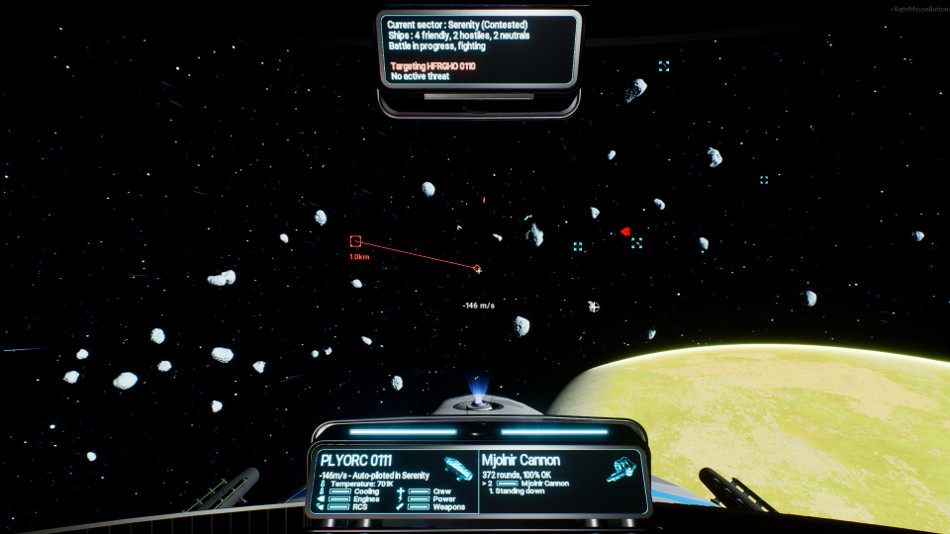
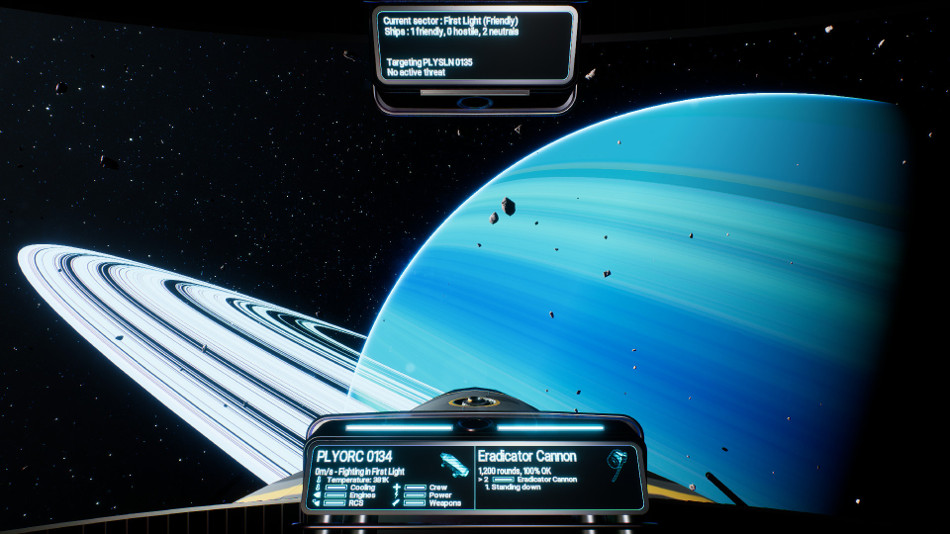
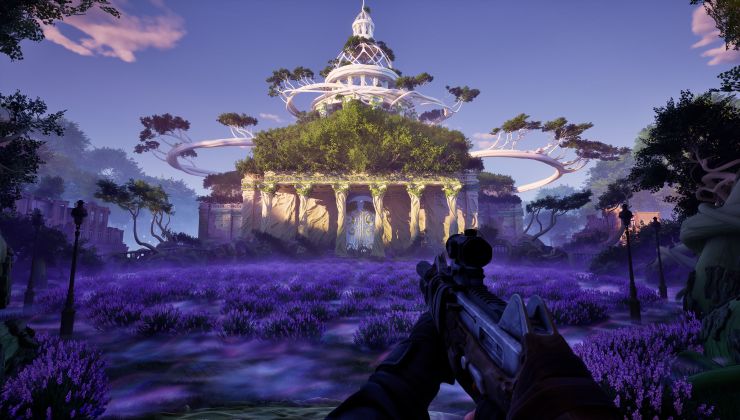
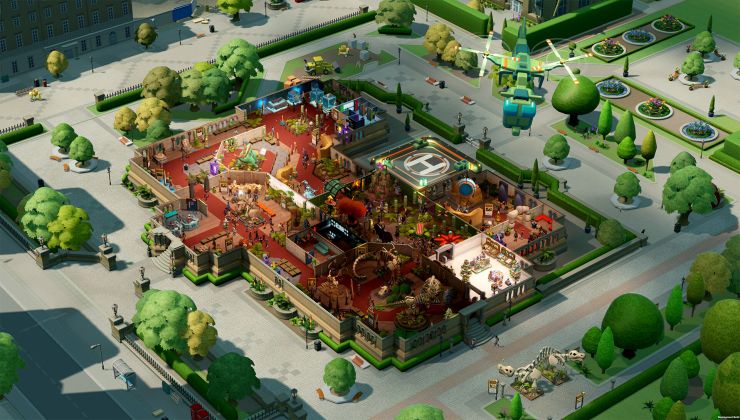
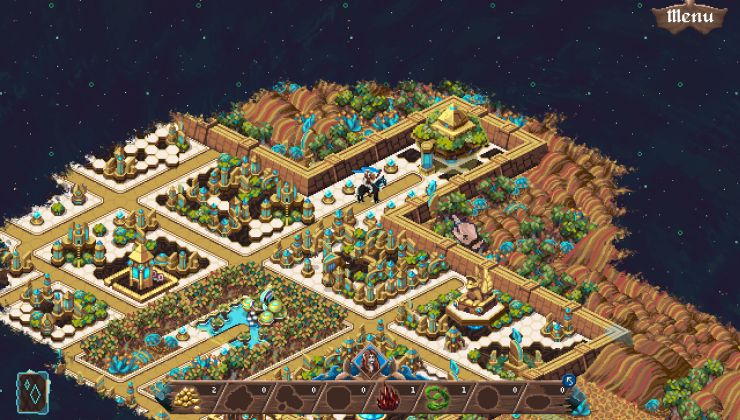
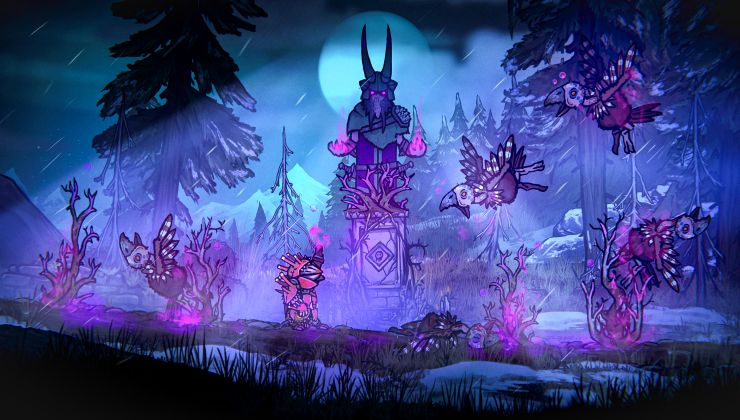





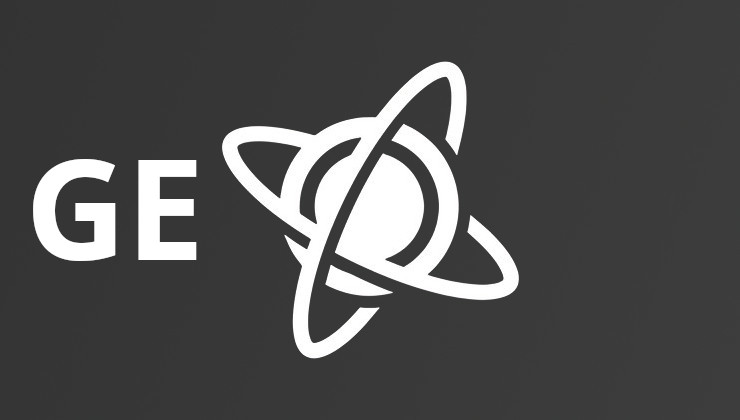 How to install GE-Proton on Steam Deck, SteamOS, Linux
How to install GE-Proton on Steam Deck, SteamOS, Linux An idiots guide to setting up Minecraft on Steam Deck / SteamOS with controller support
An idiots guide to setting up Minecraft on Steam Deck / SteamOS with controller support
See more from me